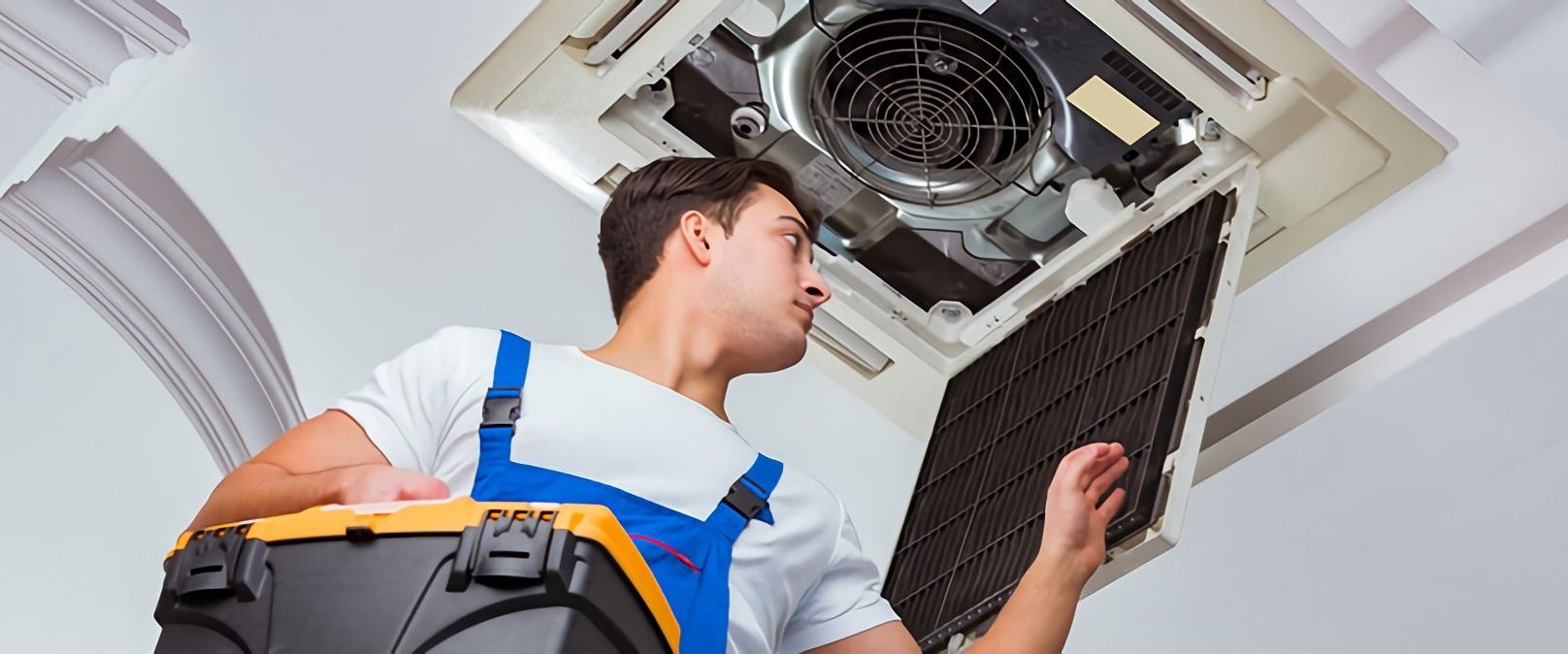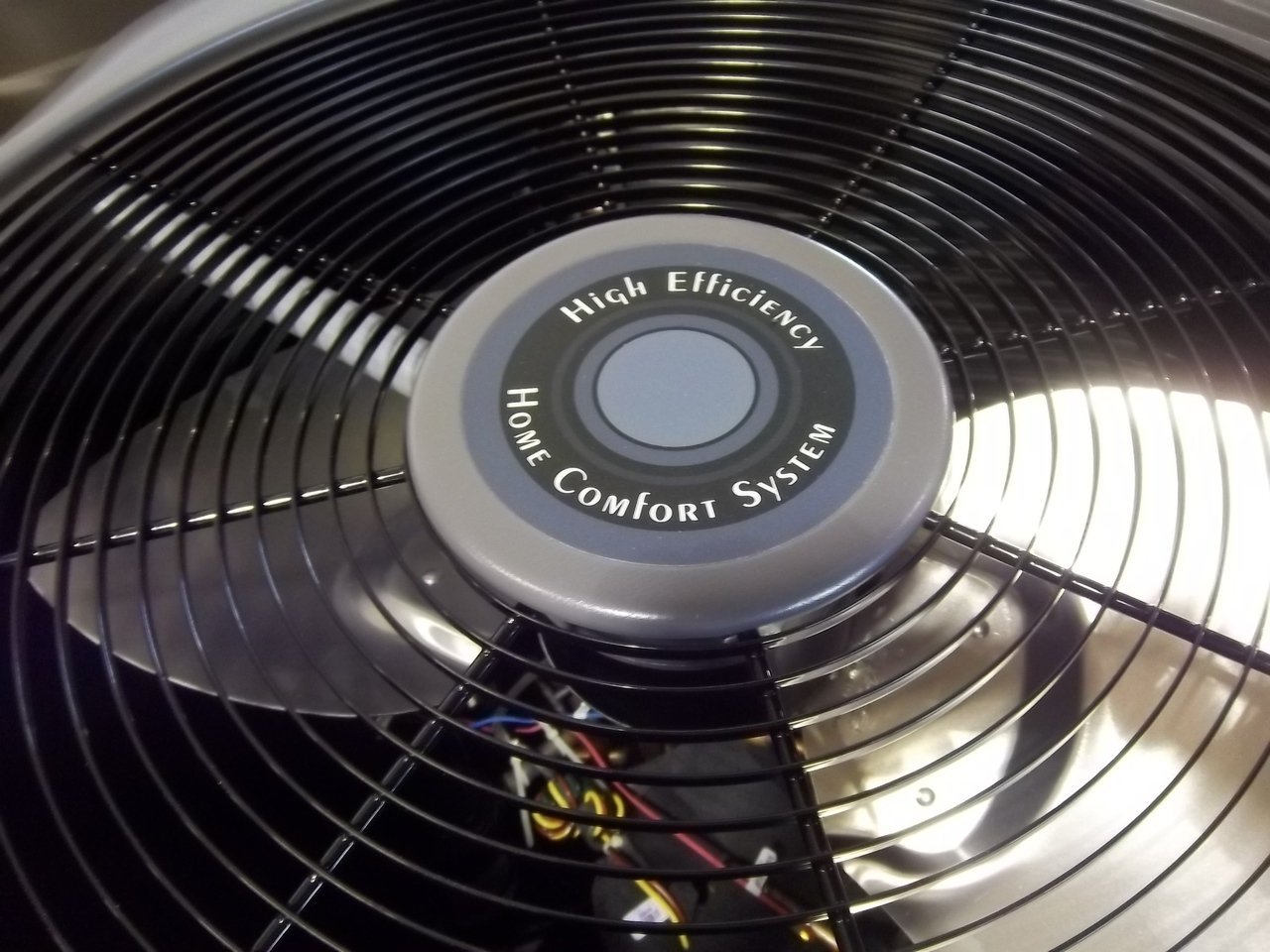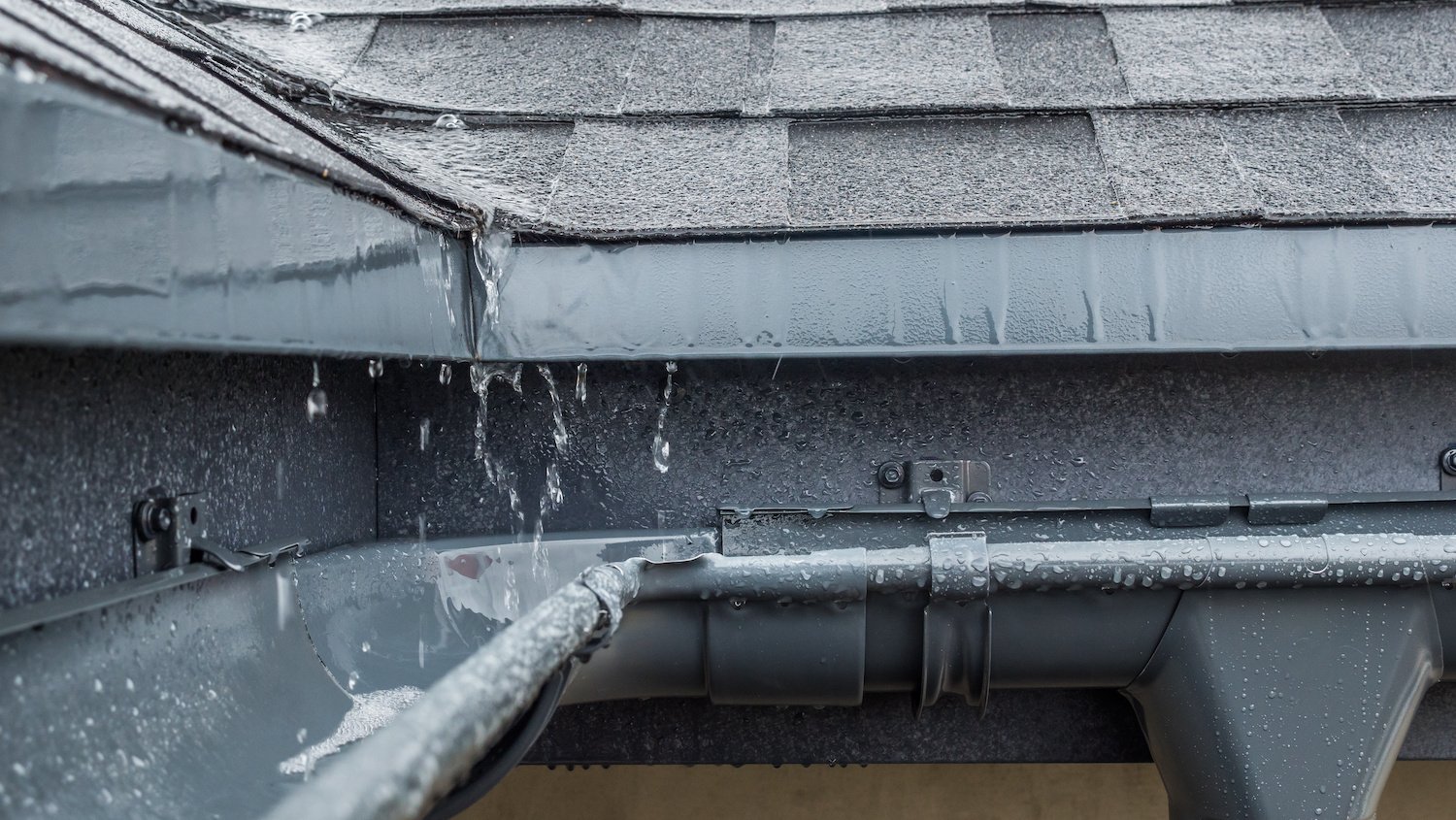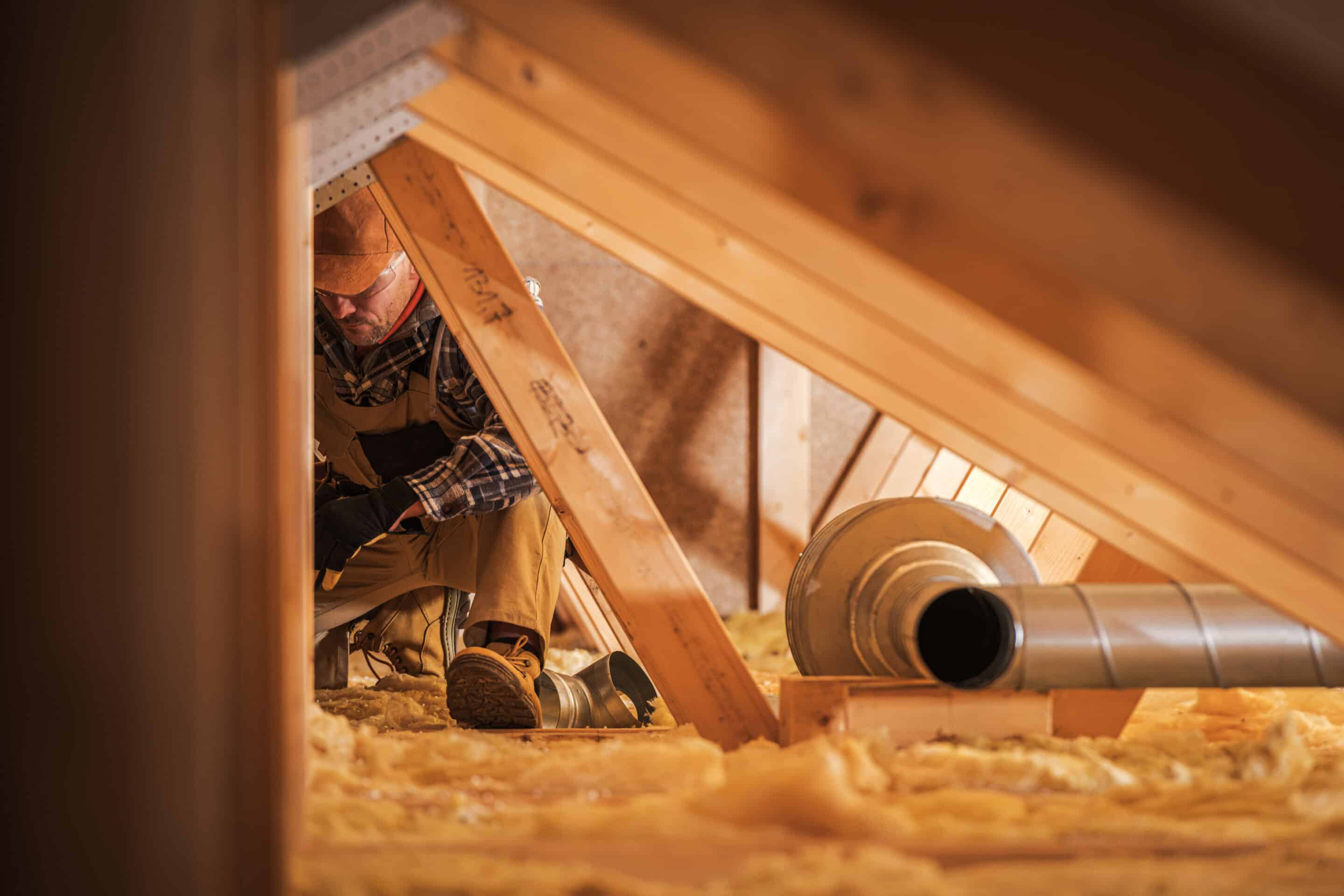Home>Home Security and Surveillance>Why Is Monitoring Your Fire Alarm Systems So Important
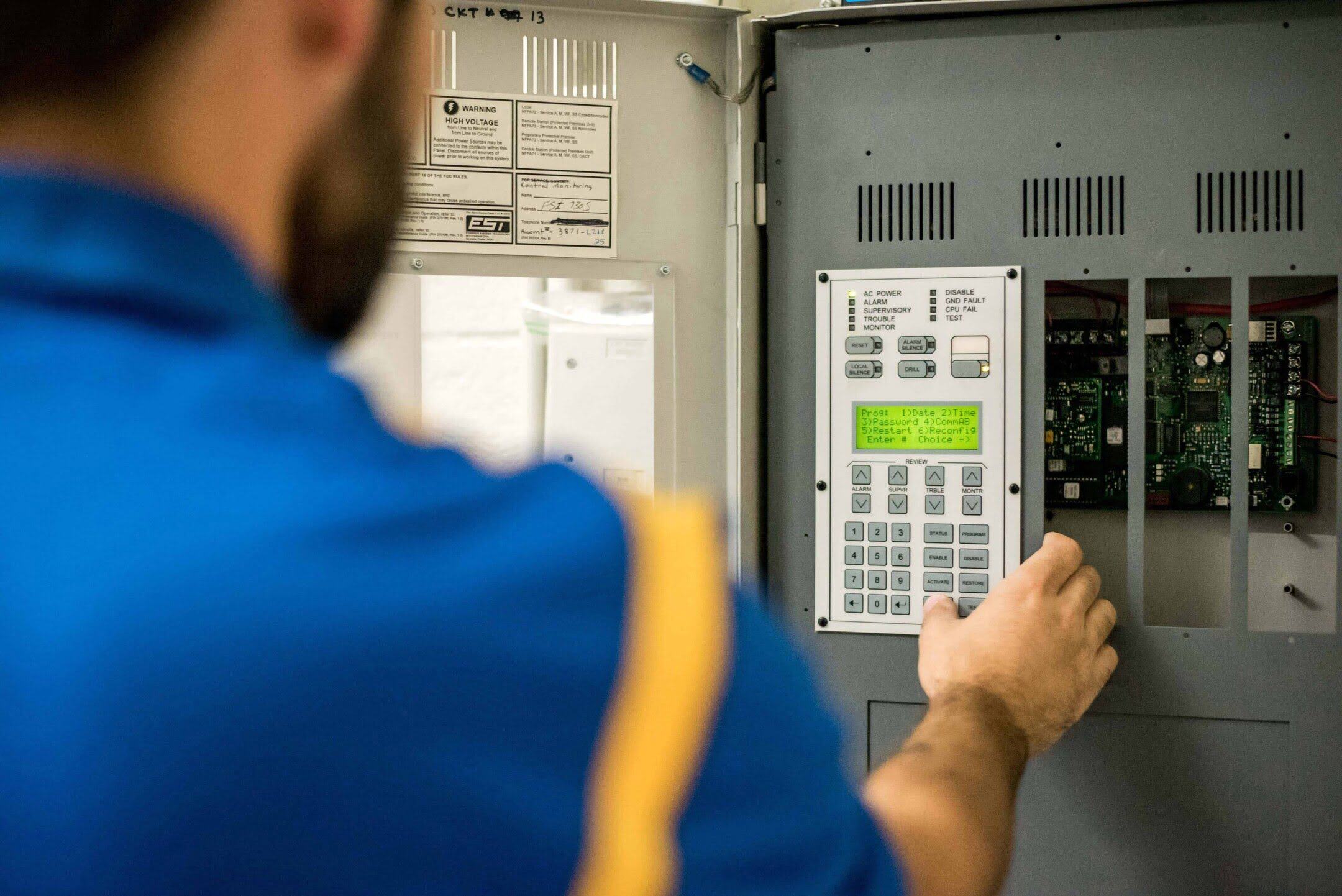

Home Security and Surveillance
Why Is Monitoring Your Fire Alarm Systems So Important
Modified: March 6, 2024
Ensure the safety of your home with effective fire alarm system monitoring. Discover why home security and surveillance are crucial for protecting your loved ones and property.
(Many of the links in this article redirect to a specific reviewed product. Your purchase of these products through affiliate links helps to generate commission for Storables.com, at no extra cost. Learn more)
Introduction
Welcome to the digital age, where technology has transformed our lives in numerous ways, making it easier and more convenient to carry out everyday tasks. From smart homes to advanced security systems, we have access to a wide range of solutions that can protect our homes and businesses. One such crucial component of home security is a fire alarm system.
A fire alarm system is not just a piece of equipment; it is a lifeline that can potentially save lives and minimize damages in the event of a fire. It is designed to detect the presence of fire, smoke, or heat and alert occupants of the premises, allowing them to evacuate safely and inform emergency services if necessary. However, simply installing a fire alarm system is not enough; monitoring it is equally, if not more, important.
In this article, we will discuss the importance of monitoring fire alarm systems and highlight their benefits. So, sit back, relax, and let’s dive into the world of home security and surveillance.
Key Takeaways:
- Early detection and prompt response from monitored fire alarm systems can save lives, protect property, and bring peace of mind by minimizing the devastating consequences of fires.
- Monitoring services provide 24/7 surveillance, immediate communication with emergency services, and added security, enhancing the reliability and effectiveness of fire alarm systems for home security and business protection.
Read more: Why Is Home Security So Important
Importance of Fire Alarm Systems
Fire alarm systems play a crucial role in keeping our homes, businesses, and loved ones safe. They are designed to detect the presence of fire, smoke, or heat and promptly alert occupants, allowing them to take immediate action. Let’s explore some key reasons why fire alarm systems are so important:
- Early Detection: One of the primary reasons to have a fire alarm system is early detection. Fires can spread rapidly, engulfing a building within minutes. With a fire alarm system, you can detect the presence of smoke or fire in its early stages, giving you valuable time to escape or alert emergency services.
- Life-saving Potential: The primary purpose of a fire alarm system is to save lives. The early warning provided by these systems significantly increases the chances of a successful evacuation, ensuring the safety of occupants.
- Property Protection: Fire does not only pose a risk to human lives, but it also causes extensive damage to property. A fire alarm system can help minimize the damage by alerting the authorities as soon as possible. This early intervention can potentially save valuable possessions, buildings, and investments.
- Compliance with Safety Regulations: In many jurisdictions, having a properly functioning fire alarm system is a legal requirement for residential and commercial buildings. By installing and regularly monitoring your fire alarm system, you ensure that you are in compliance with safety regulations.
- Peace of Mind: Knowing that you have a reliable fire alarm system in place brings peace of mind. Whether you are at home or away, you can rest assured that your property and loved ones are protected from the devastating consequences of a fire.
To fully realize the benefits of a fire alarm system, it is essential to ensure proper functionality, comply with safety regulations, and invest in monitoring services. Let’s explore these aspects in more detail.
Understanding the Risks
Before delving into the importance of monitoring fire alarm systems, it is crucial to understand the risks associated with fires. Fires can occur at any time and in any location, posing significant threats to life and property. Here are some key risks to consider:
- Rapid Fire Spread: Fires can spread rapidly, engulfing an entire building within minutes. The intense heat, smoke, and flames can quickly trap occupants, making it difficult to escape.
- Smoke Inhalation: In many fire-related deaths, it is not the flames that prove fatal, but rather the smoke and toxic gases. Inhalation of smoke can lead to severe respiratory issues and even loss of consciousness.
- Structural Damage: Fires can cause extensive structural damage to buildings, compromising their integrity and posing risks to anyone inside.
- Loss of Possessions: Fire incidents often result in the loss of valuable possessions, sentimental items, and personal belongings. These losses can have a significant emotional and financial impact.
- Business Disruption: For businesses, fires can lead to significant disruptions in operations, resulting in financial losses, reputation damage, and potential layoffs or closures.
- Risk of Injury or Fatality: Without proper warning and evacuation procedures, fires can cause severe injuries and even loss of life. The importance of early detection and swift action cannot be understated.
Understanding these risks emphasizes the importance of reliable fire alarm systems and the need for continuous monitoring. By monitoring your fire alarm system effectively, you can mitigate these risks and ensure the safety of occupants and property.
Ensuring Proper Functionality
When it comes to fire alarm systems, ensuring proper functionality is paramount. A malfunctioning or poorly maintained system can undermine its effectiveness and put lives and property at risk. Here are some essential steps to ensure the proper functionality of your fire alarm system:
- Regular Inspections: Schedule regular inspections of your fire alarm system by qualified professionals. They will check all components, including smoke detectors, heat sensors, control panels, and alarm devices, to ensure they are in proper working order.
- Maintain Cleanliness: Regularly clean your fire alarm system to remove dust, debris, and other contaminants that can affect its performance. Dusty sensors or obstructed detector heads can lead to false alarms or failed detection.
- Battery Inspection and Replacement: Check and replace batteries in smoke detectors and other required devices as needed. A low battery can compromise the functionality of the system, resulting in delayed or no alarm activation.
- Testing and Calibration: Conduct regular testing and calibration of your fire alarm system as recommended by the manufacturer and local regulations. This includes testing the alarm sounders, verifying signal transmission to the monitoring station, and ensuring proper communication between devices.
- Updating Fire Safety Plan: Review and update your fire safety plan regularly. This includes identifying evacuation routes, establishing designated meeting points, and ensuring that all occupants are aware of the plan.
- Staff Training: Train your staff or family members on how to respond to a fire alarm activation. Make sure they know the locations of fire extinguishers, emergency exits, and how to safely evacuate the building.
- Stay Informed: Keep yourself updated about advancements in fire alarm system technology and safety standards. This knowledge will help you make informed decisions about system upgrades and ensure compliance with the latest regulations.
By following these guidelines and investing in regular maintenance, you can ensure that your fire alarm system operates at its optimal level, providing the earliest possible warning in the event of a fire.
Compliance with Safety Regulations
When it comes to fire alarm systems, compliance with safety regulations is of utmost importance. These regulations are in place to ensure the safety of occupants in residential and commercial buildings. By adhering to these regulations, you not only protect lives but also avoid potential legal and financial consequences. Here are some key reasons why compliance with safety regulations is crucial:
- Legal Requirements: Many jurisdictions have specific laws and regulations concerning the installation, maintenance, and monitoring of fire alarm systems. Failure to comply with these requirements can result in penalties, fines, or even legal actions.
- Insurance Coverage: Insurance companies often require buildings to have fire alarm systems that meet certain standards and comply with safety regulations. Non-compliance may result in the denial of insurance claims or reduced coverage, leaving you financially vulnerable in the event of a fire.
- Improved Safety Standards: Safety regulations are constantly evolving to reflect advancements in technology and best practices. By complying with these regulations, you ensure that your fire alarm system meets the latest safety standards, providing the highest level of protection for occupants.
- Inspections and Certifications: Compliance with safety regulations often requires regular inspections and certifications from authorized agencies. These inspections verify that your fire alarm system meets the required standards and is functioning properly.
- Occupant Confidence: Knowing that your building is compliant with safety regulations instills confidence in occupants, employees, and visitors. They can have peace of mind, knowing that their well-being is prioritized and that adequate measures are in place to protect them in case of a fire.
- Prevention and Preparedness: Safety regulations not only focus on the installation of fire alarm systems but also on preventive measures like the presence of fire extinguishers, emergency lighting, and clear evacuation routes. These measures enhance overall fire preparedness and can significantly reduce the risk of injury or loss of life.
Compliance with safety regulations demonstrates your commitment to creating a safe environment for everyone in your building. It is essential to stay informed about the regulations specific to your location and ensure that your fire alarm system meets all the required standards.
Read more: Why Plumbing Is Important
Early Detection and Prompt Response
Early detection of a fire is critical in preventing catastrophic consequences. A fire can spread rapidly, engulfing a building within minutes and causing irreparable damage. Therefore, having a fire alarm system with reliable monitoring is key to early detection and prompt response. Here are some reasons why early detection and prompt response are crucial:
- Immediate Warning: A properly functioning fire alarm system can detect the presence of smoke, heat, or flames at the earliest stage. It can issue an immediate warning through audible alarms, strobe lights, or even automated phone calls. This warning allows occupants to take immediate action and evacuate to safety.
- Minimize Damage: Early detection allows for swift action to control and extinguish the fire, minimizing damage to the building and its contents. Quick response time significantly reduces the spread of flames and limits the impact of smoke and heat, potentially saving valuable possessions and reducing repair costs.
- Life-saving Potential: A fire alarm system with rapid detection and monitoring can save lives. It provides occupants with valuable time to escape from the building before the situation becomes life-threatening. This prompt response can make all the difference between survival and tragedy.
- Emergency Services Activation: Many fire alarm systems are directly connected to monitoring centers or emergency services. In the event of an alarm activation, these centers are alerted immediately, allowing for a faster response from firefighters and other first responders. This quick coordination can help contain the fire and minimize its impact.
- Communication and Coordination: In commercial settings, an integrated fire alarm system can facilitate communication and coordination among staff members during an emergency. It allows for the implementation of emergency plans, the organization of evacuations, and the overall management of the situation.
- Peace of Mind: Early detection and prompt response provide peace of mind, knowing that your fire alarm system is actively monitoring for potential hazards. Whether you are at home, at work, or away on vacation, you can have confidence that your property and loved ones are protected.
Investing in a fire alarm system with reliable monitoring is essential for early detection and prompt response. It can save lives, minimize damage, and provide the peace of mind that comes with knowing you are well-prepared for any fire-related emergency.
Regularly test and inspect your fire alarm systems to ensure they are functioning properly. This can help identify any issues early on and prevent potential disasters.
Reducing Losses and Damages
A fire can devastate both residential and commercial properties, causing extensive losses and damages. However, with a properly monitored fire alarm system in place, you can significantly reduce the impact of a fire. Here are some ways in which a monitored fire alarm system helps in reducing losses and damages:
- Early Detection: A monitored fire alarm system detects the presence of smoke, heat, or flames at the earliest stage. This early detection allows for immediate action to control the fire before it has a chance to spread and cause more significant damage.
- Prompt Notification: Upon detection, a monitoring center is notified immediately. This notification triggers a prompt response from emergency services. The faster they are alerted, the quicker they can arrive at the scene and begin firefighting efforts, minimizing the extent of the fire and its potential for destruction.
- Reduced Fire Spread: By detecting a fire early and initiating a response, a monitored fire alarm system helps prevent the rapid spread of flames. This containment limits damage to the immediate area of the fire, reducing the overall losses and the need for extensive repairs or rebuilding.
- Automatic Sprinkler Activation: Many fire alarm systems are integrated with automatic sprinkler systems. When a fire alarm activates, these sprinklers are triggered to release water, effectively controlling and suppressing the fire. The swift intervention of sprinklers can significantly reduce damage caused by flames, heat, and smoke.
- Faster Evacuation: A monitored fire alarm system alerts occupants to the presence of a fire, allowing for swift evacuation. Evacuating the building in a timely manner ensures the safety of individuals and reduces the risk of injuries or fatalities.
- Preserving Property: Timely response and intervention by emergency services can help protect and preserve valuable possessions, equipment, and inventory. By minimizing fire damage, a monitored fire alarm system can save businesses from extensive financial losses and enable a quicker recovery.
- Insurance Benefits: Installing and monitoring a fire alarm system may also lead to potential benefits from insurance providers. Many insurance companies offer lower premiums or special discounts for properties with certified fire alarm systems in place. This can help offset the costs of installation and monitoring services.
Investing in a monitored fire alarm system is a prudent choice to reduce losses and damages in the event of a fire. It not only protects your property and valuables but also provides peace of mind, knowing that you have taken proactive measures to safeguard against fire-related risks.
Minimizing Business Downtime
For businesses, a fire can cause significant disruptions, resulting in financial losses, operational setbacks, and potential reputational damage. However, with a monitored fire alarm system in place, you can minimize business downtime and mitigate the negative impacts of a fire incident. Here’s how:
- Early Detection and Response: A monitored fire alarm system provides early detection of a fire, ensuring a swift response from emergency services. By minimizing the spread of the fire and containing it, the system helps to limit damage to your premises and critical assets.
- Quick Evacuation: A fire alarm system with monitoring capabilities alerts occupants to the presence of a fire, allowing for a speedy evacuation. This ensures the safety of your employees, customers, and visitors. Evacuating promptly also helps prevent injuries and potential liabilities.
- Efficient Emergency Communication: Many monitored fire alarm systems offer features that facilitate emergency communication and coordination among staff members. This enables them to efficiently implement emergency plans, relay critical information, and direct evacuations, ultimately minimizing confusion and optimizing safety protocols.
- Fire Suppression Systems Integration: Monitored fire alarm systems can be integrated with fire suppression systems, such as sprinklers or suppression agents. When a fire is detected, these systems automatically activate, effectively controlling and extinguishing the fire before it spreads further.
- Rapid Restoration: With early detection and quick response, restoration efforts can commence promptly after a fire incident. By coordinating with restoration professionals, you can expedite the process of restoring your property, minimizing downtime and allowing your business to resume operations as soon as possible.
- Insurance Claims: Having a monitored fire alarm system in place may have a positive impact on insurance claims. Insurance providers often look for proactive measures taken by businesses to mitigate risks. By providing evidence of a properly maintained and monitored system, you increase the chances of a successful and expedited claims process.
- Reputation Preservation: Minimizing business downtime and demonstrating a commitment to the safety of your employees and customers contribute to preserving your business’s reputation. By swiftly recovering from a fire incident, you can reassure stakeholders that you are capable of managing crises and maintaining business continuity.
By investing in a monitored fire alarm system, you can minimize the impact of a fire on your business, reduce downtime, and ensure the safety and well-being of everyone involved. It is an indispensable tool for protecting your business and maintaining its operations during challenging times.
Regular Maintenance and Testing
Regular maintenance and testing are crucial aspects of ensuring the effectiveness and reliability of your fire alarm system. By conducting routine maintenance and testing, you can identify any potential issues, ensure proper functionality, and address any problems promptly. Here’s why regular maintenance and testing are essential:
- System Integrity: Over time, fire alarm systems can experience wear and tear, environmental factors, or equipment malfunctions. Regular maintenance helps maintain the integrity of the system, ensuring that all components are in proper working condition.
- Verification of Proper Functionality: Testing your fire alarm system on a regular basis verifies that all devices, including smoke detectors, heat sensors, control panels, and alarm devices, are functioning as intended. This provides reassurance that the system will activate appropriately in the event of a fire.
- Early Detection: By testing your fire alarm system, you can verify the sensitivity of smoke detectors and ensure that they detect smoke or fire at the earliest stages. This early detection is critical for prompt response and effective evacuation.
- Battery Performance: Regular maintenance involves checking and replacing batteries in smoke detectors and other devices as needed. This ensures that the fire alarm system is always powered and ready to operate, even during power outages.
- Alarm Audibility: Testing the sounders and alarm devices ensures that they are audible and can effectively alert occupants in an emergency. Proper audibility is essential for timely evacuation and minimizing the risk of injury or loss of life.
- Compliance with Regulations: Regular maintenance and testing help ensure that your fire alarm system is compliant with local safety regulations and standards. This compliance is vital to meet legal requirements and maintain a safe environment for occupants.
- Minimizing False Alarms: Regular maintenance can help identify and address any issues that may contribute to false alarms. False alarms not only disrupt daily operations but also lead to complacency and may result in emergency services not responding promptly in the case of a real fire.
- Documentation: Documenting maintenance and testing activities provides a record of adherence to safety standards and compliance requirements. This documentation is useful for audits, inspections, and insurance purposes.
Consult the manufacturer’s guidelines and local regulations for specific recommendations on the frequency of maintenance and testing for your fire alarm system. It is essential to work with qualified professionals to perform routine inspections, maintenance tasks, and testing to ensure the continued reliability and effectiveness of your fire alarm system.
Read more: Why HVAC Is Important
Monitoring Services: The Key to Effective Fire Alarm Systems
While having a fire alarm system is crucial, the ability to monitor it is equally important. Monitoring services provide an additional layer of protection and can significantly enhance the effectiveness of your fire alarm system. Let’s explore why monitoring services are key to effective fire alarm systems:
- 24/7 Surveillance: Monitoring services ensure that your fire alarm system is under continuous surveillance, 24 hours a day, 7 days a week. This constant monitoring allows for immediate response and intervention in the event of a fire, greatly reducing the potential for extensive damage and loss.
- Early Detection: With monitoring services in place, any alarm activation or system fault triggers an immediate alert to a central monitoring station. Trained professionals at the monitoring center can quickly assess the situation and initiate the appropriate response, often before anyone on-site may even be aware of the danger.
- Immediate Emergency Response: When a fire alarm system is monitored, it is directly connected to emergency services or a dedicated monitoring center. Once an alarm is activated, the monitoring center can promptly notify the nearest fire department, ensuring a rapid response and potentially minimizing the response time from emergency responders.
- Reduced False Alarms: Monitoring services utilize advanced technology to filter out false alarms. Trained professionals can assess the situation and verify the presence of an actual fire before contacting emergency services. This reduces the likelihood of unnecessary responses and associated costs.
- Remote Access and Control: Monitoring services often provide the ability to remotely access and control your fire alarm system. This allows you to monitor system status, receive notifications, and even control system functions, such as arming or disarming alarms, from anywhere at any time.
- Added Security and Peace of Mind: Knowing that your fire alarm system is monitored around the clock adds an extra layer of security and peace of mind. Whether you are at home, at work, or away on vacation, you can rest assured that your property and loved ones are being protected.
- System Troubleshooting and Maintenance: Monitoring services often include remote troubleshooting and diagnostic capabilities. This allows monitoring center technicians to identify system issues and provide guidance for maintenance or repair, ensuring that your fire alarm system remains in optimal working condition at all times.
- Compliance and Insurance Benefits: Many insurance providers offer benefits or discounts for properties with monitored fire alarm systems. By investing in monitoring services, you demonstrate your commitment to fire safety and may qualify for potential cost savings on insurance premiums.
Monitoring services are a vital component of a comprehensive fire alarm system. They provide continuous surveillance, immediate response, and peace of mind, enhancing the overall effectiveness of your fire protection measures. Consider incorporating monitoring services into your fire safety strategy to maximize the safety and security of your property and the people within it.
Conclusion
Fire alarm systems are a crucial component of home security and business protection. They provide early detection of fires and alert occupants, allowing for prompt evacuation and quick response from emergency services. However, simply installing a fire alarm system is not enough. To ensure its effectiveness, continuous monitoring is essential. Monitoring services play a key role in maximizing the benefits of a fire alarm system.
By providing 24/7 surveillance, monitoring services enable early detection of fires, reducing the risk of extensive damage and potential loss of life. Immediate communication with emergency services ensures a rapid response, minimizing the spread of flames and the impact of a fire. Monitoring services also help reduce false alarms, prevent complacency, and maintain compliance with safety regulations.
Regular maintenance and testing are vital to ensure the proper functionality of your fire alarm system. By investing in monitoring services, you add an extra layer of protection, enhancing the reliability and effectiveness of your fire alarm system. Remote access and control, troubleshooting capabilities, and compliance benefits are additional advantages offered by monitoring services.
Ultimately, the goal of a fire alarm system and monitoring services is to protect lives, property, and businesses from the devastating consequences of a fire. They provide peace of mind, knowing that you have taken proactive measures to ensure the safety and well-being of your loved ones and valuable assets.
In conclusion, a comprehensive fire alarm system combined with diligent monitoring services is the key to effective home security and business protection. By investing in these essential components, you can minimize the risk of fire-related disasters, reduce losses and damages, and ensure the safety of everyone involved. Don’t wait until it’s too late; prioritize the installation and monitoring of a reliable fire alarm system today.
Frequently Asked Questions about Why Is Monitoring Your Fire Alarm Systems So Important
Was this page helpful?
At Storables.com, we guarantee accurate and reliable information. Our content, validated by Expert Board Contributors, is crafted following stringent Editorial Policies. We're committed to providing you with well-researched, expert-backed insights for all your informational needs.



